While Liverpool and Mo Salah both look to get the best value from their ongoing contract talks, the Egyptian can point to Robert Lewandowski as a prime example.
Despite what some might say, Mohamed Salah is the best player in the Premier League right now.
His eye-catching performances have been a major catalyst for the Reds’ title charge, currently sitting two points clear with a game in hand.
But it’s not what Salah can do right now that’s up for debate.
The question for the powers that be is: what will he be like in two or even three years from now? And does that justify the kind of contract he would command?
Letting Mo go
![]()
Should he leave this summer, Salah would be a free agent at 32.
That’s a year younger than Luis Suarez was when Barcelona elected not to offer him a new contract. With the Catalans in cost-cutting mode, his longevity was called into question – the same question the ever-prudent FSG are asking now.
Suarez went on to join rivals Atletico Madrid and he instantly delivered.
Despite recently returning from a knee surgery that ruled him out for six months – the longest absence of his career – he bagged 21 goals to fire the Atleti to their 11th LaLiga title.
The following season, however, was less prolific, with the then-34-year-old being hampered by injuries and scoring just 13 goals in all competitions.
That signalled the end of his career at the elite level, with spells at Internacional and Gremio following, and he’s now playing the hits with his former Barca teammates at Inter Miami.
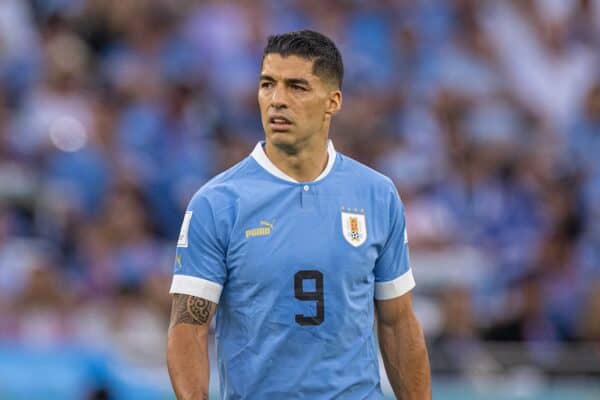
Suarez has missed very few games due to injury, even since 2020, but his commitment to playing through the pain appears to have caught up to him in recent years.
He has been reportedly contemplating retirement since 2022 and is on record as being in “constant pain” due to suspected osteoarthritis in his knee, which makes training and playing at his maximum intensity impossible.
El Pistolero had his first major surgery at the same age that Salah is currently, showing that the ever-presence that characterises both players can take its toll later on.
While the initial season after his departure was a painful one for Barcelona, it’s hard to argue that they should have re-signed him in hindsight.
Give Mo his dough
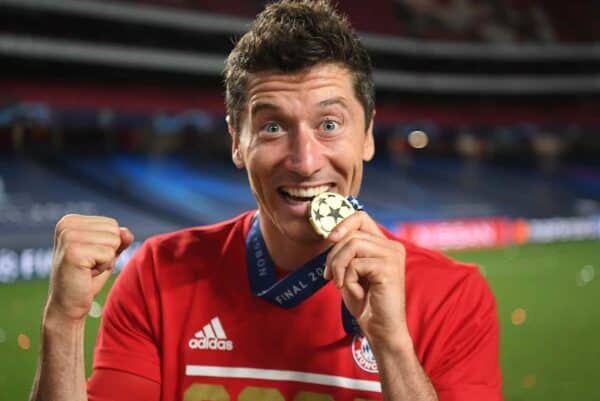
Speaking of Barcelona, their current No. 9 is also one to consider.
Robert Lewandowski was entering the final year of his contract back in 2019 and had just secured another Bundesliga title with Bayern Munich – scoring 40 goals in all competitions.
Turning 32 during negotiations, the main man of Munich posed a difficult question to the Bayern hierarchy. In the end, they offered him a four-year contract – and it proved to be a masterstroke.
He proceeded to score an obscene 55 goals in all competitions in 2019/20, winning the treble for Bayern in the process. The cancellation of that year’s Ballon d’Or constituted daylight robbery.
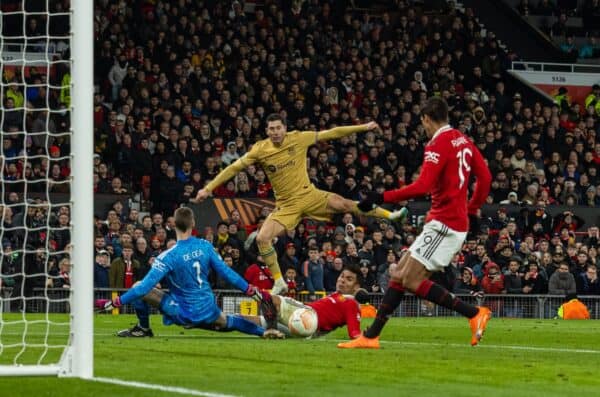
The following two seasons brought more scoring records and another two league titles, before he once again entered the final year of his contract.
This time, the 34-year-old was sold for a healthy fee to Barcelona, where he was top scorer and won the title in his first season.
Now 36, Lewandowski is in his third season at Camp Nou and has already surpassed the 20-goal mark.
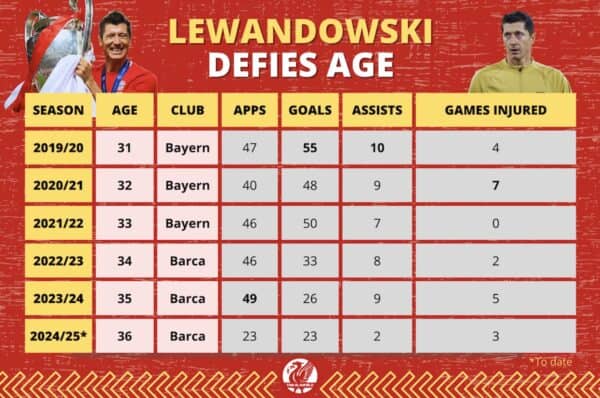
Similar to Salah, Lewandowski has a reputation for supreme dedication to his fitness and recovery.
It shows in his incredible injury record, missing just 23 games on medical grounds in the five years since signing that renewal at Bayern.
His most significant injury was ‘ligament stretching’ in March 2021, which kept him out for seven games for club and country.
Should Mo stay or go?
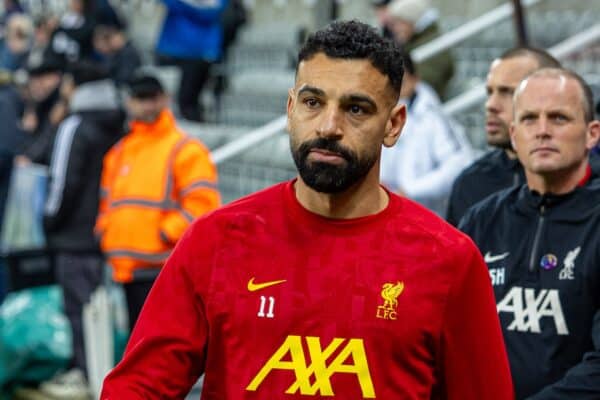
If we look deeper at these two cases, the parallels between Salah and Lewandowski become clearer.
The current Barca man was a relatively late bloomer to elite-level football, moving to the Bundesliga at the age of 22 from the Polish Superliga.
That’s the same age Salah was when he debuted for Chelsea in 2014.
Lewandowski’s national team of Poland is also one of the smaller nations on the world stage, frequently exiting competitions in the group stage – thereby lightening Lewandowski’s overall workload.
His 155 career appearances for Poland (so far) add up to less than 12,000 minutes of game time.
Likewise, Salah is the talisman for a less successful international side. He’s played 101 times so far for Egypt, racking up just short of 9,000 minutes.
They’ve qualified for just one World Cup in that time, though they have gone deep at the Africa Cup of Nations.
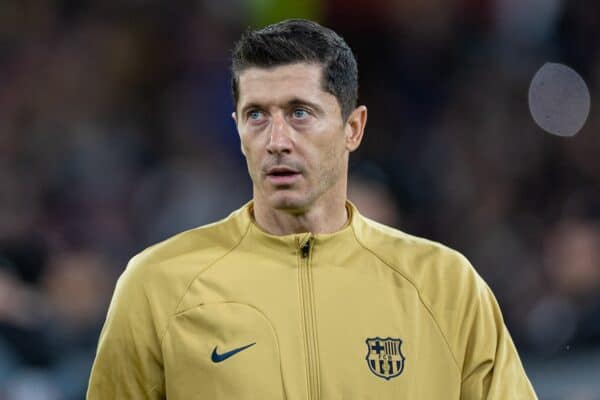
Both players have also notably adapted themselves to both their age and the game around them.
Lewandowski broke scoring records as a single-minded finisher, but in his latter years in Germany he embraced a more collective ethic.
Since reuniting with treble-winning coach Hansi Flick at Barcelona, he’s also altered his work out of possession.
While Barca still press high, he mostly operates as a shadow marker, blocking passing lanes to the pivot players behind him while allowing his teammates to do the hard yards of closing players down.
It’s allowed him to be just as effective, while minimising his limitations.
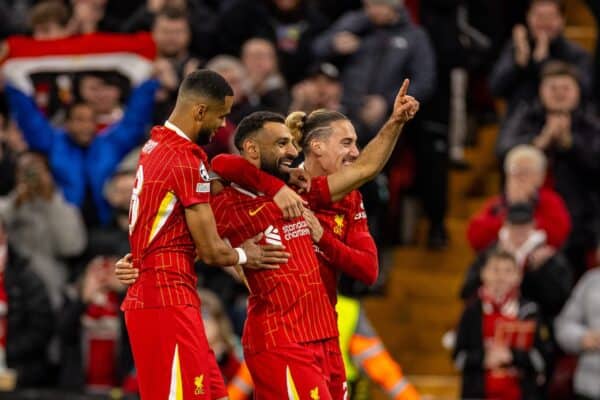
Salah, similarly, has taken on the role of chief creator in Liverpool’s attack since turning 30.
He now relies less on pure pace and more on his range of passing to orchestrate attacks and feed his teammates, while still rising to the biggest moments himself when needed.
While Sky Sports recently noted his number of pressures per game have decreased since the arrival of Arne Slot, the new coach’s style of play is less about the high press.
The new defensive structure is more about denying transitions and remaining compact, with the intense sprints reserved for flying forwards in attack.
Why can’t Salah do the same?
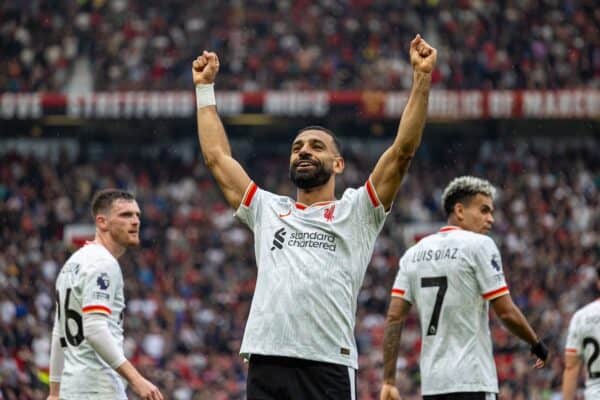
It can be tempting to frame Salah’s excellence this season as a message to the ownership regarding his new contract.
But the more likely reason is that, in this team, with this coach, Salah is perfectly set up to succeed – for however long he’s here.
Predicting an impact injury or a decline in confidence for a player is impossible.
But if the question is ‘how can we be sure that a player will stay elite into his late 30s?’, just look at the ones that have. Then ask: why can’t Salah do the same?
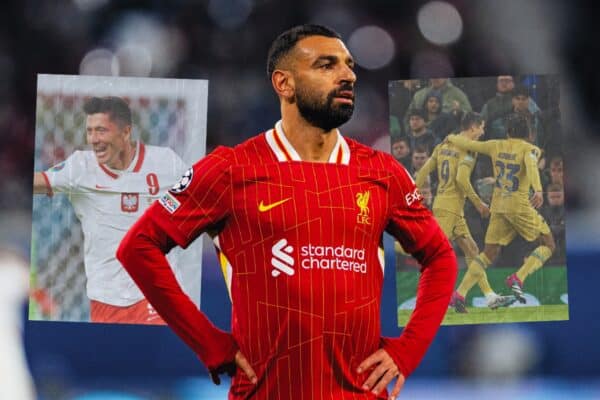






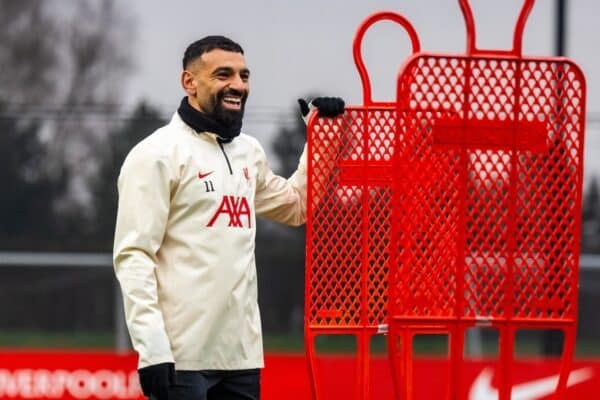
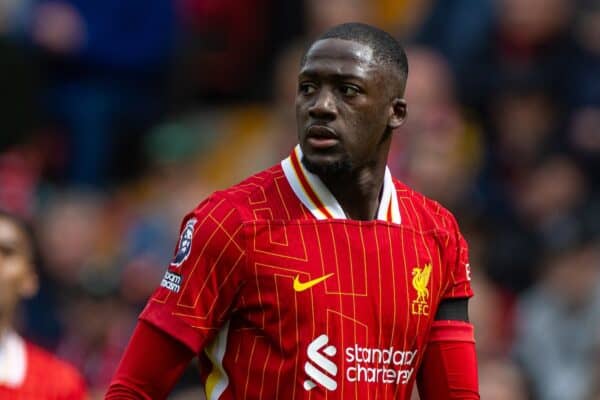

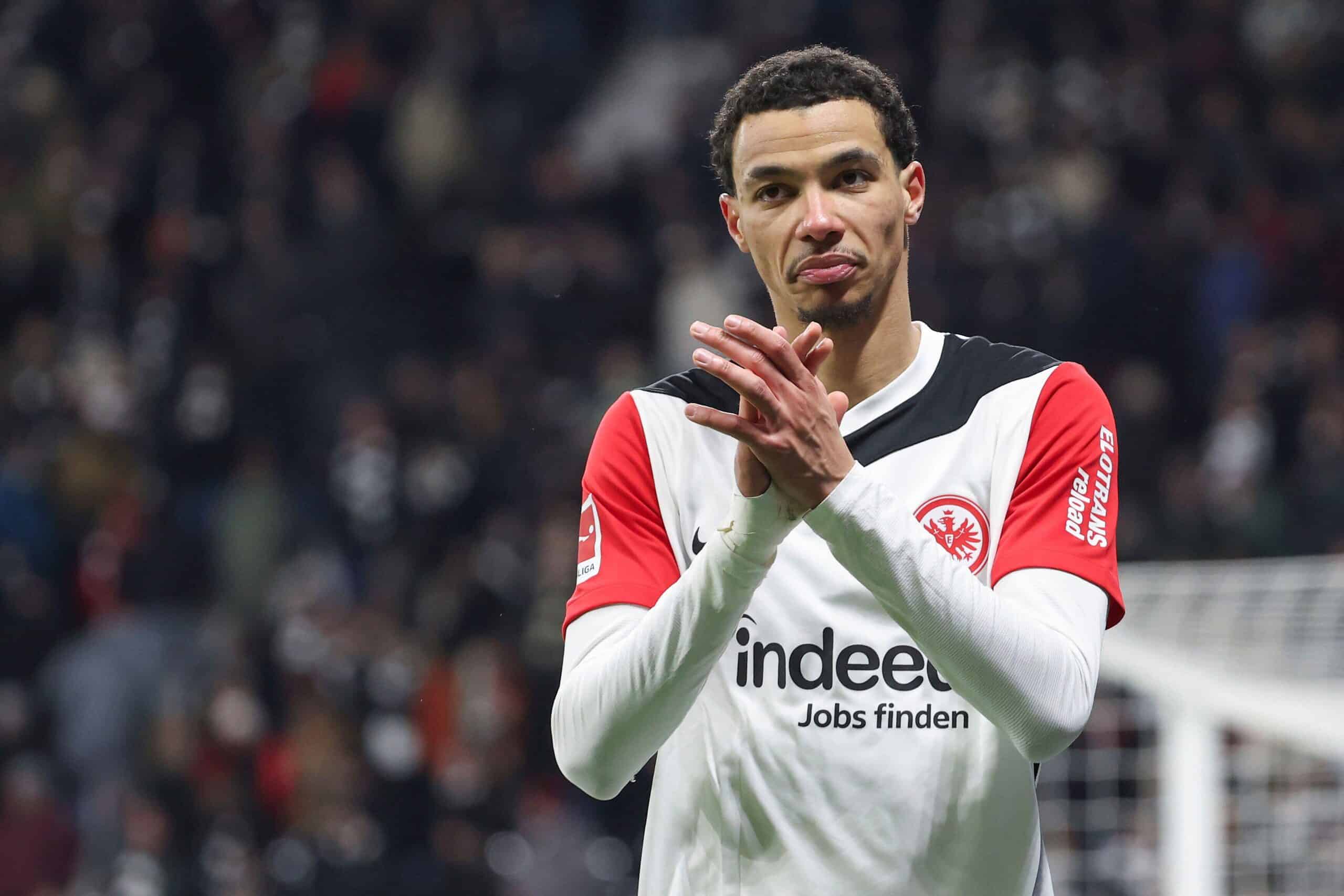
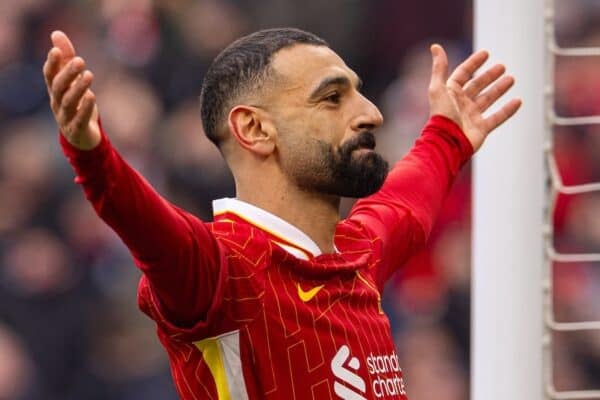

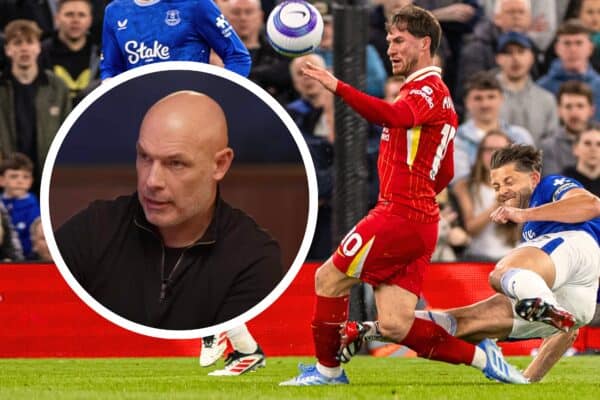



Fan Comments